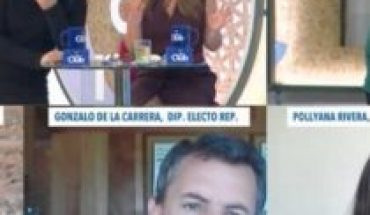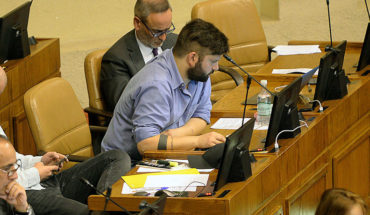Faced with a 75% budget cut for materials and supplies and for general services, ordered by the federal government to deal with the COVID-19 crisis, the Institute of Ecology (Inecol) is clearly concerned: paying for water to continue watering plants and electricity to maintain air conditioners and dehumidifiers.
It might sound very basic, but it is that the little budget will not reach to do new field work, but only to maintain the Botanical Garden of the headquarters in Xalapa, Veracruz, listed as one of the 10 most beautiful in North America, and the herbariums of Xalapa and Pátzcuaro, Michoacán, which are 40 years old and form the second largest plant acquis in the country , after the National Herbarium.
Read: ‘Not everyone who is engaged in science, culture and academia are conscious people’: AMLO
“Obviously we get really close because the essence of the Institute of Ecology is to go to the field, go take field data, go take specimens, do experiments outside, and we can’t do ecology from Google Earth,” laments its director, Miguel Rubio.
Like Inecol, the 26 Public Research Centers (ICC) of the National Council of Science and Technology (Conacyt) are being compromised their ability to operate for the rest of the year with only a quarter of the money they had budgeted for it.
The Federation’s Egress Budget (PEF) 2020 originally allocated 6 billion pesos to the ICC. Spending for these institutions is divided into four chapters: 1000 is Personal Services, 2000 is Materials and Supplies, 3000 is General Services, and 4000 Transfers, Allowances, and Subsidies.
Of the 1000s come the salaries of researchers and staff, and of 4000 scholarships for students and scientists in training. In them is the largest amount of budget allocated: almost 5 billion this year.
While 2000 and 3000 are for the overall operation, which in 2020 was 315 million pesos, or 21.6% of its total budget.
During the first quarter, the Centers exercised 322 million, but with the 75% cut ordered on April 21, they have about 200 million pesos left for operation for the rest of the year. Less than he’s going to be handed out in decorations to medical staff for attending COVID-19.
Rubio, director of Inecol, appreciates that the wages item has not been touched and ensures that even without going to the field, researchers are being very productive from home working on analysis of many data that had been kept, but that will only be maintained in the short term.
In addition, however, they have not been to the offices for two months because of quarantine, electricity consumption, for example, only fell 20%, so it does not have much room to make further cuts.
“As the director of the CIDE commented, it is an absolutely unprecedented situation, never in the history of this country had such a big cut has been made to the state, and it puts us in a situation, as he says, of war economy. I as a biologist see it from an ecological perspective: what we need to do as an institution is to take a form that allows us to cope with the crisis, whether it is a seed, a spore, a cyst, the bug of your choice, and to maintain the absolutely essential activities to ensure that the institution survives both the epidemic and the economic crisis, and to ensure that it is viable in the medium term. I’m talking about trying to get there at least by the end of the year,” he says.
The director of the Center for Economic Research and Teaching (CIDE), Sergio López Ayllón, points out in an interview with Animal Político that it is like a boss or head of household arrives at his house and announces that from now on there will be 75% less money: there are expenses that cannot be avoided, such as paying the property, water, light, cleaning, maintenance , so other services and goods simply can no longer be purchased.
“In the specific case of CIDE we will stop printing books and publications, we will have to stop acquiring information services, which are central to research, we will have to reduce to its minimum expression the maintenance of the facilities, we will not be able to acquire certain specialized software. Let’s say, it’s going to alter the daily life of the institution for the rest of the year,” he said.
Some of these points are more serious than they seem: for example, stopping paying for subscription to specialized databases or journals means that the entire collection is lost, and that for months researchers will not have certain information.
“But there are other Centers that are still in a more delicate situation, because they require specialized laboratories, they require maintenance to microscopes, freezers where they have samples, or the use of reagents and highly specialized material. They will have a greater affectation than the CIDE, investigations that take years or months of being developed and that will have to be suspended due to lack of resources. So it’s compromising the long term for the short term,” he said.
If applicable, the operating budget was around 93 million, 24.7% of its total budget of the institution, which with the cut applied in the period May to December, are about 40 million pesos less. López Ayllón asks to put that in the context of the total that the government has in chapters 2000 and 3000: after the first quarter of the year, there were about 500 billion pesos left, so what is saved in Research Centers is minimal.
Therefore, the Conacyt is in dialogue with the Ministry of Finance to review the cut to the ICC, since their operating expenses are not the same as those of the other government units, due to the work they do for knowledge. The directors consulted commented that the cut has already been implemented, but are awaiting a negotiation that reviews the priorities of each Research Centre on a case-by-case basis so that they are protected.
“It must be made clear that this is not a political issue, it is not a question of being or not agreeing with the policy of austerity, which I personally of course agree with, the correct use of public resources is an obligation and it is not in doubt, what is worrying is that it is intended to apply a policy to rajatabla without assessing the situation of each entity and without taking into account the history of each one,” He said.
What we do in Animal Político requires professional journalists, teamwork, dialogue with readers and something very important: independence. You can help us keep going. Be part of the team.
Subscribe to Animal Político, receive benefits and support free journalism #YoSoyAnimal.
translated from Spanish: Research Centres fear long-term viability by cutting 75%
May 29, 2020 |





